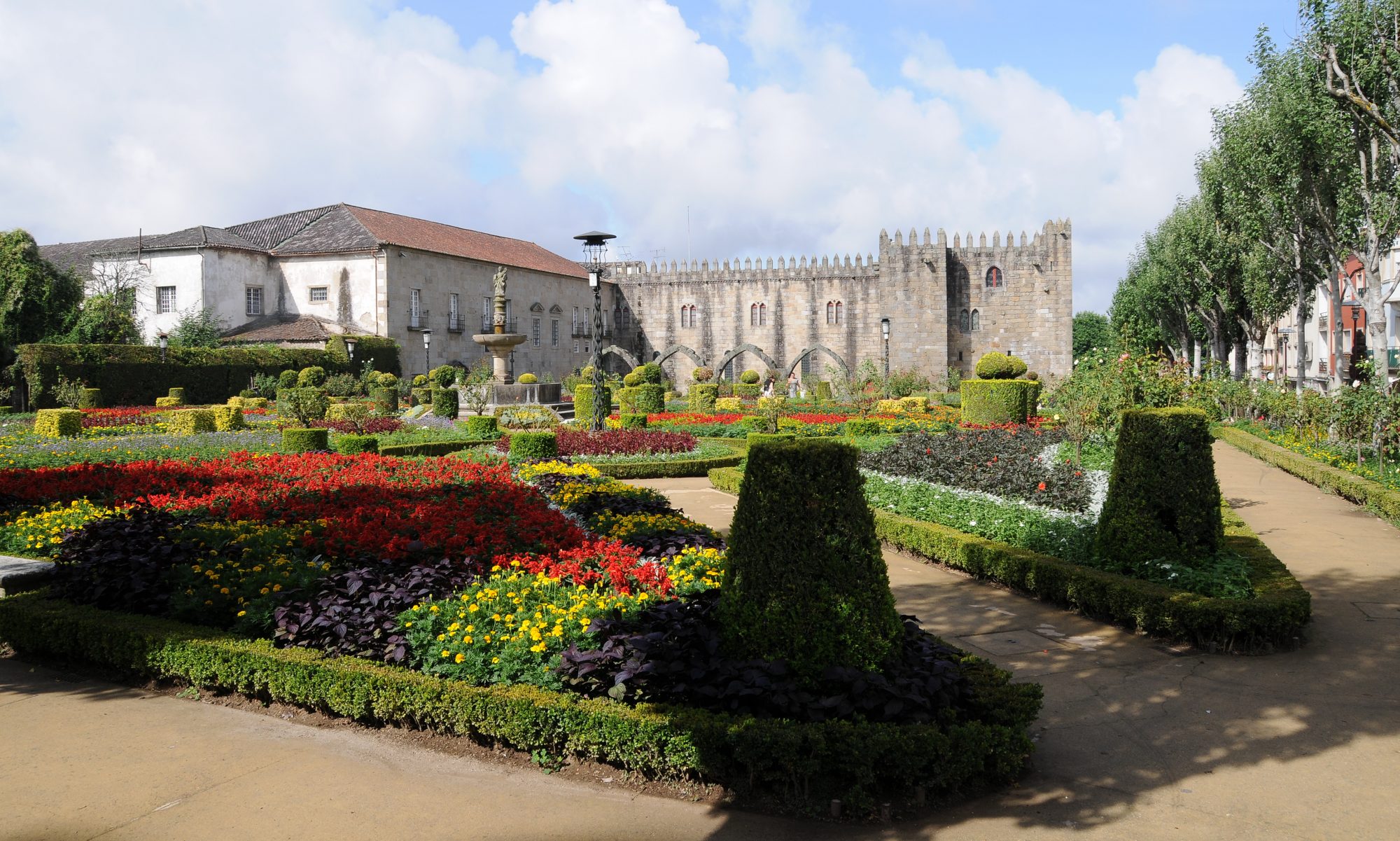The social programme includes visits to mandatory places in Braga (the Cathedral and its neighbor Largo do Paço, as well as the Bom Jesus sanctuary) and tasting of Vinho Verde. Here are some other suggestions, by the organizing committee, for a deeper experience of Braga.
The conference happens in the week leading to the municipal holiday (June 24), when the is city transformed by a religious and popular festivity to celebrate St John and the arrival of Summer. In Braga you may enjoy the wonders of portuguese food. Some of the local specialities are Bacalhau à Braga (Braga style Codfish), Arroz de Pato à moda de Braga (Braga style Duck Rice) and the (extremely) sweet Pudim Abade de Priscos (Abbot of Priscos’ pudding). Do not miss the coffee shop A Brasileira. Every coffee shop sells cakes and sweets, but you may want to try some of the best (and oldest) pastry shops: Docaria de S. Vicente and Confeitaria de Sto. António. Braga is filled with beautiful churches. For instance in Igreja de S. Vítor you may experience “ouro sobre azul” (= gold over blue), which is a baroque style of decoration where carved wood coated with gold (“talha dourada“) is combined with wall tiles with drawings in blue.
Speaking of architecture and wood carving, it is worthwhile to discover Braga’s most important artist, André Soares (1720 – 1769), our master of Rocaille. You will find his name in no History of Art book. After his death, he fell into absolute oblivion for 200 year, until being rediscovered by art historian Robert Smith. Nowadays, Braga people know they walk in the city center among many works by the artist. You may enjoy the setting defined by both palaces in Praça do Município; close to the old hospital (interesting on its own) you will certainly enjoy Palácio do Raio; and we also propose the facade of Igreja dos Congregados, in Avenida Central. In the same avenue, 50 metres away in the East direction, there is Casa Rolão, where you find the nice bookshop Centésima Página. There, you may rest in a nice interior garden, enjoying a slice of home-made cake, and meditate about the delightful corner that exists between Congregados and the bookshop, also attributed to the master. If you happen to have the opportunity, then in the outskirts of Braga you find Igreja de Santa Maria Madalena (in Falperra) or the splendid set of talha dourada in Igreja do Convento de Tibães.
One of the recommended hotels of the conference is located in Praceta John XXI, one of the endpoints of Avenida John XXI, a busy, large, modern and uninteresting avenue in Braga. According to the preface to the Portuguese edition of The Development of Logic, by W. Kneale and M. Kneale, the most widely used medieval textbook on Logic (the Tractatus) was written by Peter of Spain in the XIII century. The author is traditionally identified with the Portuguese Pedro Julião, who was elected Archbishop of Braga in 1273 and became Pope John XXI in 1276.
